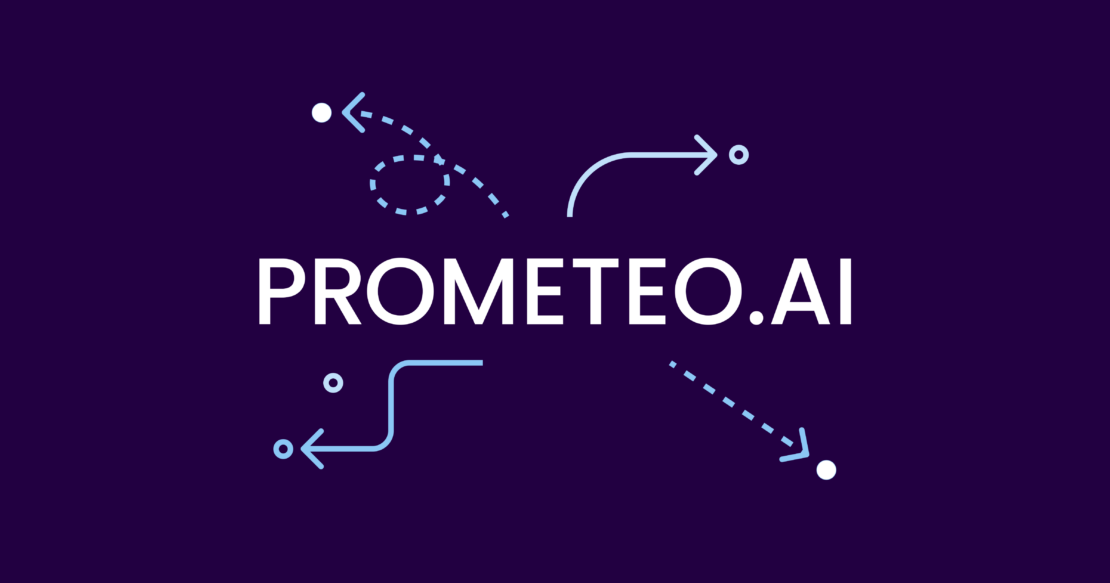Learning about and sharing ways in which those in the Docker community leverage Docker to drive innovation is always exciting. We are learning about many interesting AI/ML solutions that use Docker to accelerate development and simplify deployment.
In this blog post, Saul Martin shares how Prometeo.ai leverages Docker to deploy and manage its machine learning models allowing its developers to focus on innovation, not infrastructure/deployment management, for their sentiment analysis of a range of cryptocurrencies to provide insights for traders.
The digital assets market, which is famously volatile and swift, necessitates tools that can keep up with its speed and provide real-time insights. At the forefront of these tools is Prometeo.ai, which has harnessed the power of Docker to build a sophisticated, high-frequency sentiment analysis platform. This tool sifts through the torrent of emotions that drive the cryptocurrency market, providing real-time sentiments of the top 100 assets, which is a valuable resource for hedge funds and financial institutions.
Prometeo.ai’s leveraging of Docker’s containerization capabilities allows it to deploy and manage complex machine learning models with ease, making it an example of modern, robust, scalable architecture.
In this blog post, we will delve into how Prometeo.ai is utilizing Docker for its sentiment analysis tool, highlighting the critical aspects of its data collection, machine learning model implementations, storage, and deployment processes. This exploration will give you a clear understanding of how Docker can transform machine learning application deployment, presenting a case study in the form of Prometeo.ai.

Data collection and processing: High-frequency sentiment analysis with Docker
Prometeo.ai’s comprehensive sentiment analysis capability hinges on an agile, near real-time data collection and processing infrastructure. This framework captures, enriches, and publishes an extensive range of sentiment data from diverse platforms:
- Stream/data access: Platform-specific data pipelines tasked with real-time harvesting of cryptocurrency-related discussions hosted on siloed Docker containers.
- Tokenization and sentiment analysis: The harvested data undergoes tokenization, transforming each content piece into a format suitable for analysis. An internal Sentiment Analysis API further enriches this tokenized data, inferring sentiment attributes from the raw information.
- Publishing: Enriched sentiment data is published within one minute of collection, facilitating near real-time insights for users. During periods of content unavailability from a data source, the system generates and publishes an empty dictionary.
All these operations transpire within Docker containers, guaranteeing the necessary scalability, isolation, and resource efficiency to manage high-frequency data operations.
For efficient data storage, Prometeo.ai relies on:
- NoSQL database: DynamoDB is used for storing minute-level sentiment aggregations. The primary key is defined such that it allows quick access to data based on time-range queries. These aggregations are critical for providing real-time insights to users and for hourly and daily aggregation calculations.
- Object storage: For model retraining and data backup purposes, the raw data, including raw content, is exported in batches and stored in Amazon S3 buckets. This robust storage mechanism ensures data durability and aids in maintaining data integrity.
- Relational database: Metadata related to different assets, including links, tickers, IDs, descriptions, and others, are hosted in PostgreSQL. This provides a relational structure for asset metadata and promotes accessible, structured access when required.
NLP models
Prometeo.ai makes use of two Bidirectional Encoder Representations from Transformers (BERT) models, both of which operate within a Docker environment for natural language processing (NLP). The following models run multi-label classification pipelines that have been fine-tuned on an in-house dataset of 50k manually labeled tweets.
- proSENT model: This model specializes in identifying 28 unique emotional sentiments. It owes its comprehensive language understanding to training on a corpus of more than 1.5 million unique cryptocurrency-related social media posts.
- proCRYPT model: This model is fine-tuned for crypto sentiment analysis, classifying sentiments as bullish, bearish, or neutral. The deployment architecture encapsulates both these models within a Docker container alongside a FastAPI server. This internal API acts as the conduit for running inferences.
To ensure a seamless and efficient build process, Hugging Face’s model hub is used to store the models. The models and their binary files are retrieved directly from Hugging Face during the Docker container’s build phase. This approach keeps the Docker container lean by downloading the models at runtime, thereby optimizing the build process and contributing to the overall operational efficiency of the application.
Deployment
Prometeo.ai’s deployment pipeline is composed of GitHub Actions, AWS CodeDeploy, and accelerated computing instances. This pipeline forms a coherent system for efficiently handling application updates and resource allocation:
- GitHub Actions: The onset of the pipeline employs GitHub Actions, which are programmed to autonomously instigate a fresh deployment upon the push of any modifications to the production branch. This procedural design ensures the application continually operates on the most recent, vetted code version.
- AWS CodeDeploy: The subsequent phase involves AWS CodeDeploy, which is triggered once GitHub Actions have successfully compiled and transferred the Docker image to the Elastic Container Registry (ECR). CodeDeploy is tasked with the automatic deployment of this updated Docker image to the GPU-optimized instances. This robust orchestration ensures smooth rollouts and establishes a reliable rollback plan if necessary.
- Accelerated computing: Prometeo leverages NVIDIA Tesla GPUs for the computational prowess needed for executing complex BERT models. These GPU-optimized instances are tailored for NVIDIA-CUDA Docker image compatibility, thereby facilitating GPU acceleration, which significantly expedites the processing and analysis stages.
Below is a snippet demonstrating the configuration to exploit the GPU capabilities of the instances:
1 2 3 4 5 6 | deploy: resources: reservations: devices: - driver: nvidia capabilities: [gpu] |
Please note that the image must be the same version as your CUDA version after running nvidia-smi:
1 | FROM nvidia/cuda:12.1.0-base-ubuntu20.04 |
To maintain optimal performance under fluctuating load conditions, an autoscaling mechanism is incorporated. This solution perpetually monitors CPU utilization, dynamically scaling the number of instances up or down as dictated by the load. This ensures that the application always has access to the appropriate resources for efficient execution.
Conclusion
By harnessing Docker’s containerization capabilities and compatibility with NVIDIA-CUDA images, Prometeo.ai successfully manages intensive, real-time emotion analysis in the digital assets domain. Docker’s role in this strategy is pivotal, providing an environment that enables resource optimization and seamless integration with other services.
Prometeo.ai’s implementation demonstrates Docker’s potential to handle sophisticated computational tasks. The orchestration of Docker with GPU-optimized instances and cloud-based services exhibits a scalable and efficient infrastructure for high-frequency, near-real-time data analysis.
Do you have an interesting use case or story about Docker in your AI/ML workflow? We would love to hear from you and maybe even share your story.
Learn more
- Get the latest release of Docker Desktop.
- Vote on what’s next! Check out our public roadmap.
- Have questions? The Docker community is here to help.
- New to Docker? Get started.
